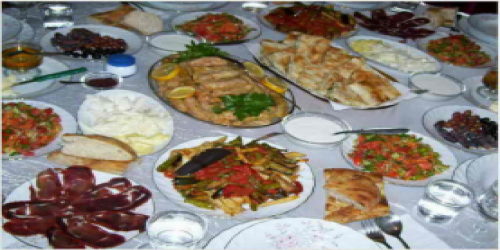Confused About Fasting During Pregnancy? Read This!

Being a compulsory activity, Muslim women remain
concerned about their capability to fast during the month of Ramadan. In fact,
it is the physical state of a pregnant woman that decides whether or not she should
fast.
Study results and religious viewpoints:
Despite a lot of studies being conducted, no conclusive
statement is available regarding the compulsion. According to Islamic
commandment, Allah has ordered relaxation upon pregnant women’s fasting during
the holy month of Ramadan.
It is advisable for pregnant women to fast if they remain
fit enough with proper weight and the movements of the baby inside. Islam
introduces “Fidyah” that allows individuals, who cannot fast to ensure the
fulfillment of the compulsion by providing foods to the poor and wretched on
the missed days of the holy month of Ramadan.
Things to be aware of:
- In case of unfit physical state, pregnant women
should not fast since such activity may cause harm to the baby inside.
- If the month of Ramadan arrives in summer, the
possibility of suffering from dehydration should be considered with
caution.
- If you are considerably healthier than other
pregnant women, you can fast.
Preparation to fast:
- First, you should consult a gynecologist
- Second, you should take test to know if you have
diabetes, anemia or pre-eclampsia. Diabetes increases risk of increasing
glucose while anemia may weaken your body. So, be careful about these
complications.
- Third, seek assistance from a dietitian for a proper
diet plan during Ramadan.
- Fourth, try to quit or reduce intake of chocolate,
coffee, tea, and even green tea since these contain caffeine which may
cause dehydration.
Being careful about a few things:
Check to see if-
- Your weight is properly maintained
- You are pretty thirsty
- You have severe headache
- You feel extremely nauseated
Things to do to bring comfort to yourself during Ramadan:
- Try to stay in rest.
- Stay free of mental stress.
- Avoid taking a long walk.
- Do not lift heavy things.
- Be cautious about Sehr and Iftar meals.
- Do not keep up late.
- Do not avoid taking Sehr meal.
- Take healthy diet including brown flour, whole
grains, low GL rice, dates and other dry foods that contain carbohydrates
contributing to slow discharge of physical strength. Eat fruits and vegetables.
- Stay in a quiet and cool place and drink as much as
1.5-2 liters of water.
Diet plan for Sehr and Iftar:
For Sehr:
Foods containing plenty of fibers and calories are ideal
for Sehr. Avoid foods that trigger gastric pain if you are already suffering
from such. In order to meet the deficiency of iodine and dehydration, keep
fruits like mangoes, bananas, etc. in your menu.
For Iftar:
Avoid fried items or snacks. Keep dates, fruit juice and
beaten rice-curd-fruit in your diet so that the level of sugar remains okay.
Other ideal choices include fruit or vegetable salad, soup, milk or milk based
food items like lassi, mattha, etc.
For dinner:
For supper, you can choose to take a balanced diet brown
rice, bread from brown flour, dahl, fish and meat. However, avoid too much
spicy or rich food items. Drink water as much as needed.
When to see a doctor?
- If you do not feel any movement of the baby inside
- Abdominal pain identical to the pain during
menstruation
- If you feel dizzy despite adequate rest or sleep
- If you feel like having fever or having severe
headache
- If you and your baby inside do not gain weight
- If your urine is thick and the frequency is very
low, it is the sign of dehydration
- If your urine stinks too much, you might have
urinary infection
Conclusion:
You can fast without having to worry if you are healthy
enough for a pregnant woman. Make sure you follow the rules properly and are in
regular contact with a physician.
Contact our call center to consult
doctors at SuperMom for any children and maternity affairs from 9am to 5pm from
Sunday-Thursday (except on Government holidays). Call at 08000-888-000 (Toll
free).
Most Popular Article
-
Tips for a Safe Journey during Pregnancy

-

5 tips for new moms who are fasting this Ramadan
-
Confused About Fasting During Pregnancy? Read This!

-

9 tips to comfortable clothing for new moms
-
Are you upset about stretch marks? Here are 10 natural home remedies!

-

-
5 Easy Ways to Reduce Back Ache During Pregnancy

-

Extra care guide for pregnant women in summer